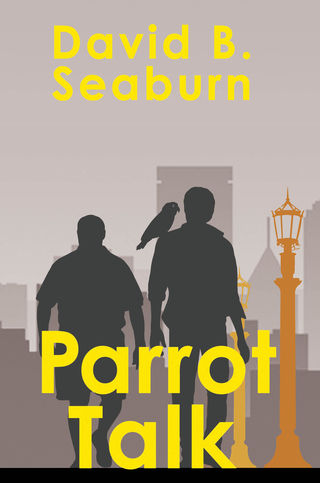Alcoholism
What is Redemption After All?
It helps to be a little more found than lost.
Posted November 15, 2017
I often don’t know what the themes of my novels are until after I’ve written them. My latest novel, Parrot Talk, is no different in that regard. My goal in writing it was to tell a humorous story about a not very humorous circumstance: Two middle-aged brothers who were abandoned by their mother when they were young learn, after thirty five years, that their mother has died; not only has she died, but she has left her companion, Paul, in their care; turns out Paul is a grieving African grey parrot with a few things to say that will turn their lives upside down.
Theme to be determined.

Only after a local church chose Parrot Talk as a book for the congregation to read, did I learned that the theme of the story was redemption. I knew that change was part of the story, but redemption seemed a little too High-Church sounding to me.
I know what redemption means. I am a retired Presbyterian minister and when I was a teen I even went forward at a crusade and gave my life to Jesus so that he might redeem me, which is to say, save me from my sins. Over the years I should have gone back routinely because I’m not sure it took the first time. Nevertheless, I understand the Christian meaning of redemption, and I wasn’t convinced that my novel was an example thereof.
But the group of twenty or so congregants that met one Sunday after services to discuss the novel convinced me to look at it more closely. Maybe they knew something I didn’t. A common occurrence once a book is released and others discover aspects of it that you didn’t realize were there.
So back to the story I went. And they may have been right.
Pop, the one-time nasty alcoholic father of the aforementioned sons, gets himself born again in the most unusual way---he discovers the face of Jesus in a slice of Thanksgiving turkey, clearly a life-changing event; he carries his “turkey-head Jesus” with him in a Ziploc baggy everywhere he goes. His family dismisses his earnestness about his conversion as silliness or even subterfuge. But in this burial scene late in the book, he makes his case again:
“‘You all have poked fun at this relic of my transformation. And I suppose I understand. It’s a doggone nasty looking thing. But it changed my life’…He reached into his jeans pocket and pulled out the Ziploc bag that held turkey-head Jesus…He…then pulled a Swiss army knife from his other pocket. He got down on both knees beside Grinder [one son] and Paul [the parrot]. He dug a small hole with the knife’s spoon fixture…He looked at Grinder. ‘Like you said, son, sometimes life’s like droppin’ a penny into a slot machine. Just a game of chance. Sometimes you win, but mostly you lose.’ He spooned dirt over turkey-head Jesus and patted it down. ‘But I prefer to think that life’s more like plantin’ something and watchin’ it grow.’ He beamed at his boys. “No matter how goddam long it takes.’”
I grew up with a redemption that was supposed to ransom me from sin and evil. Pop is talking about a little different kind of redemption. But it is one I can embrace, because at its heart is the notion that anything is possible, that any of us can grow, any of us can change, any of us can head off in a new and hopefully better direction, not because we are any less sinful or any more protected from evil, but because we are a little less lost and a little more found.
David B. Seaburn is a writer. His latest novel is Parrot Talk (https://www.amazon.com/Parrot-Talk-David-B-Seaburn/dp/1612968554/). Seaburn is also a retired marriage and family therapist, psychologist and minister.


